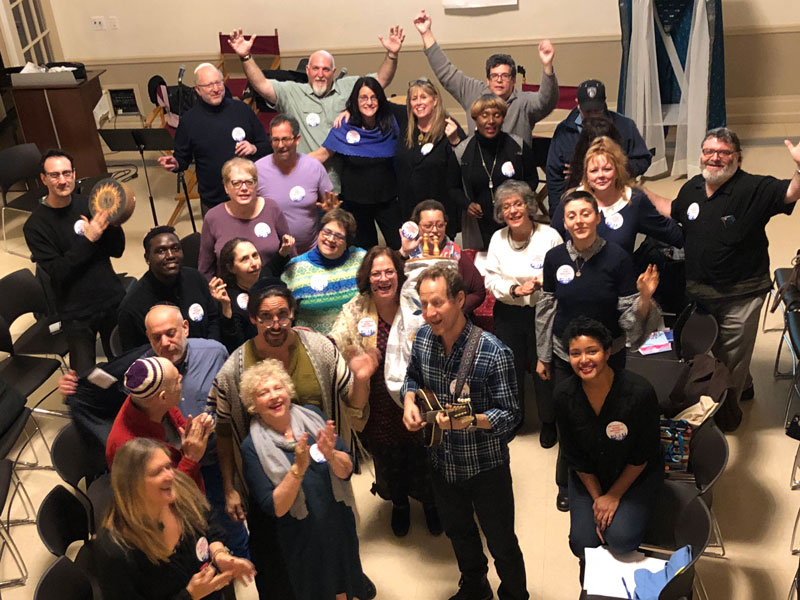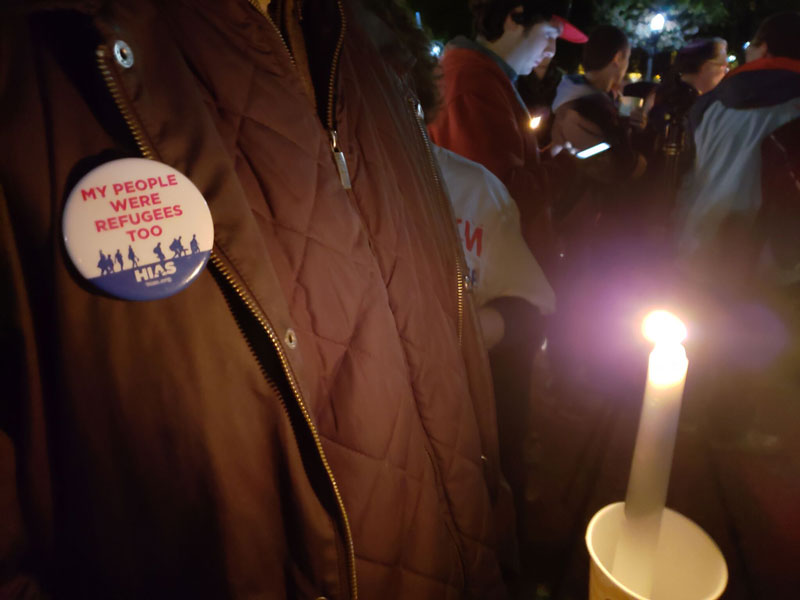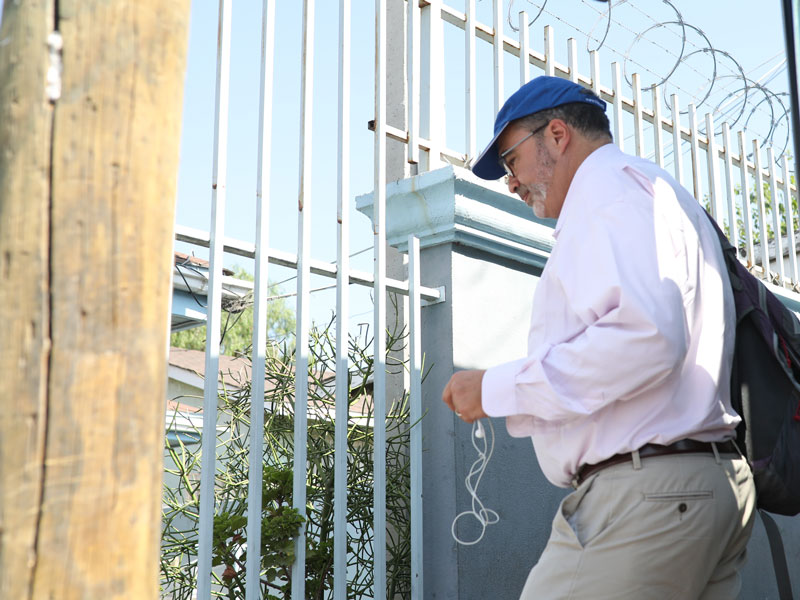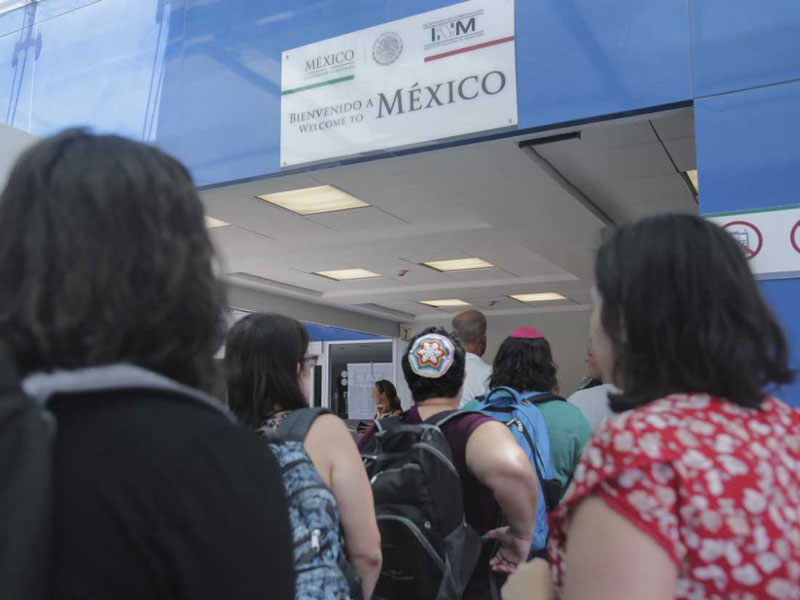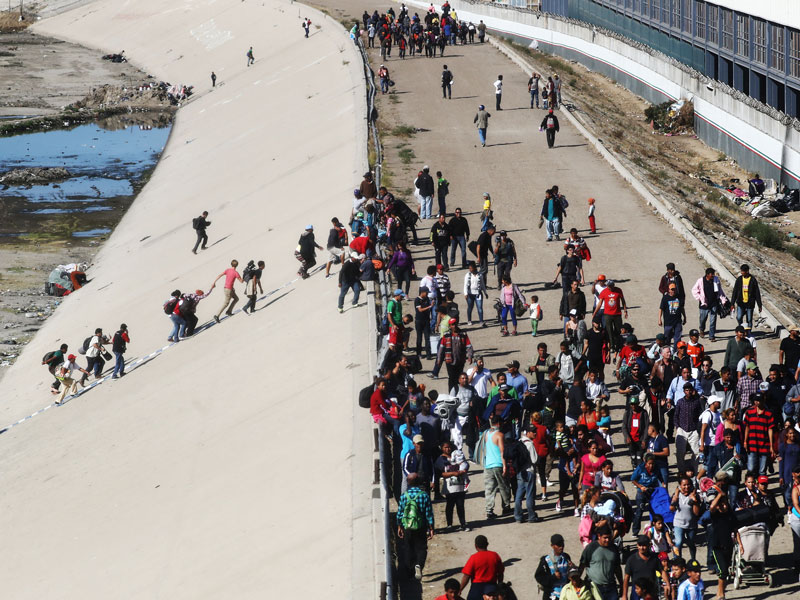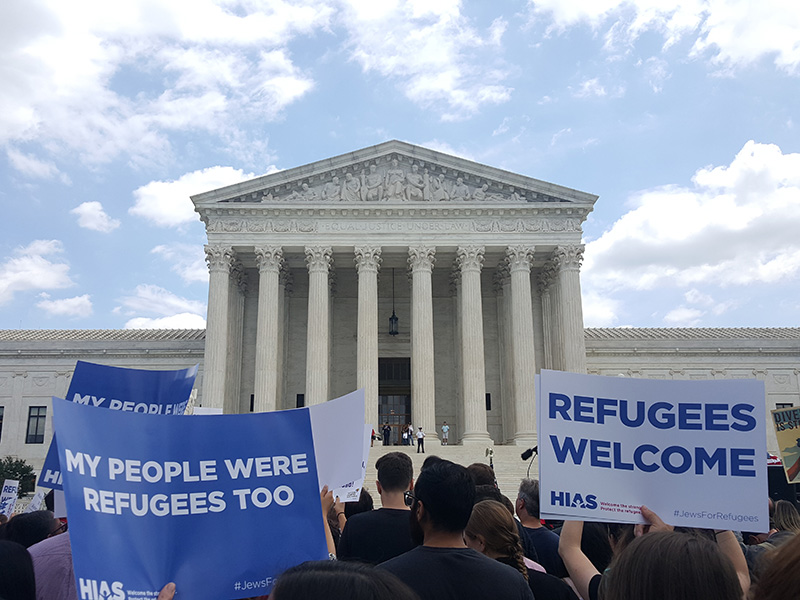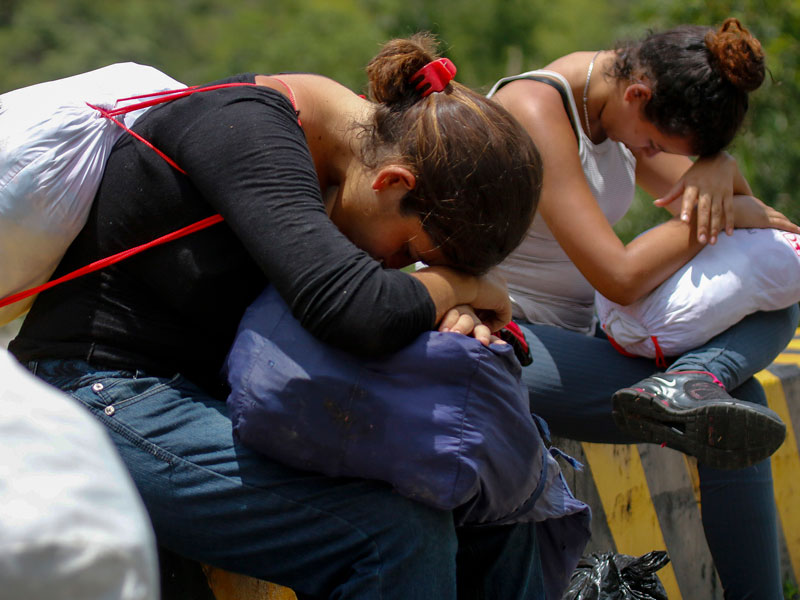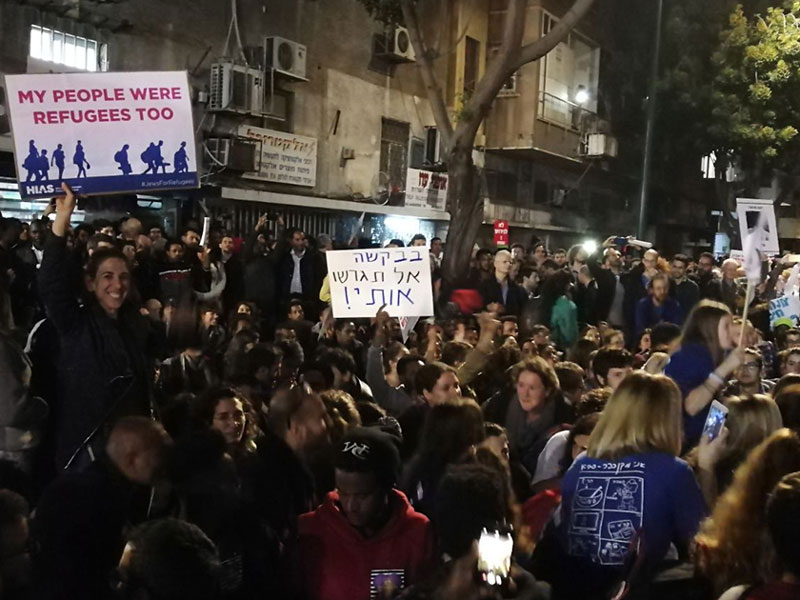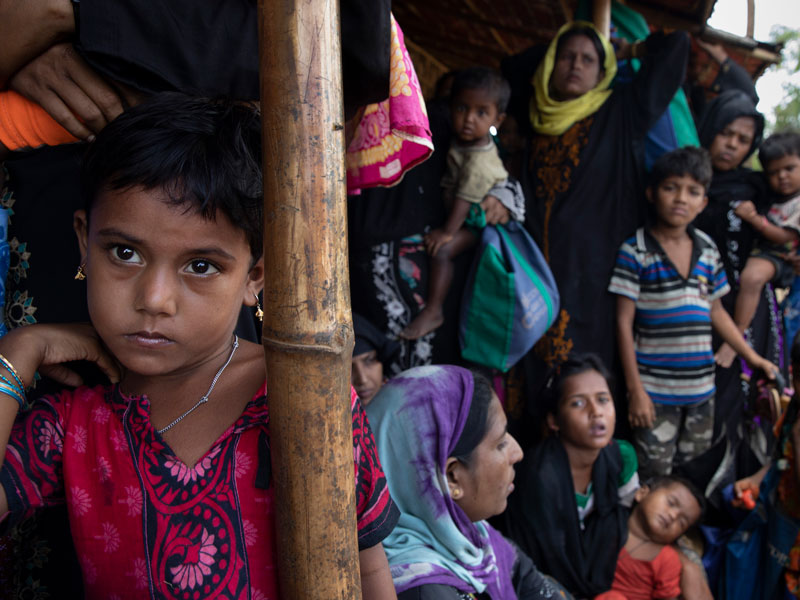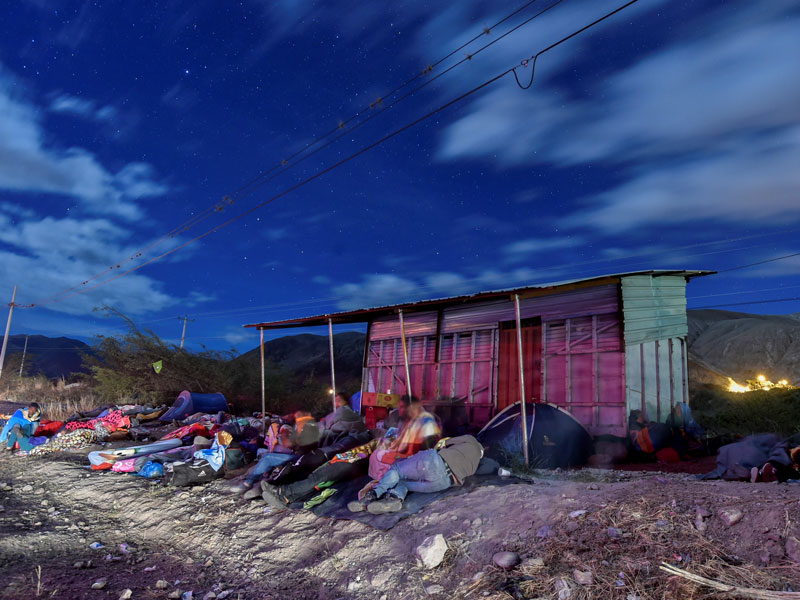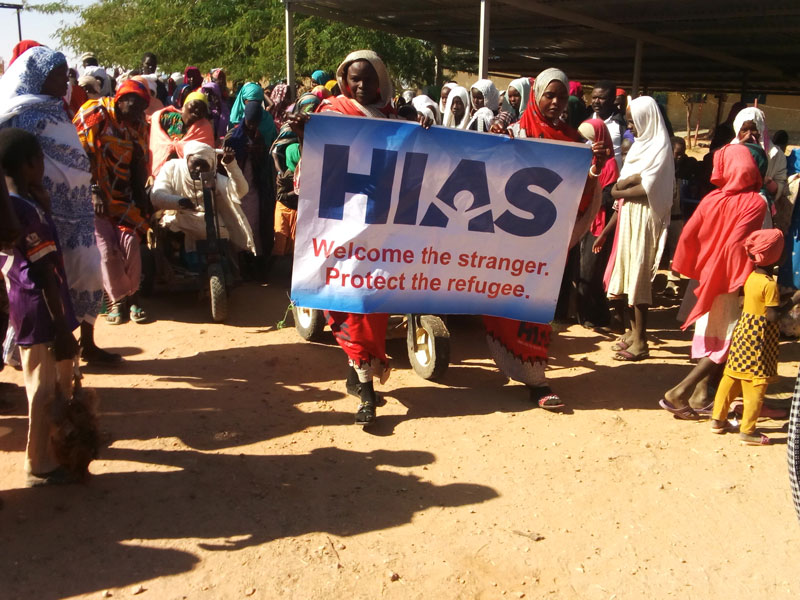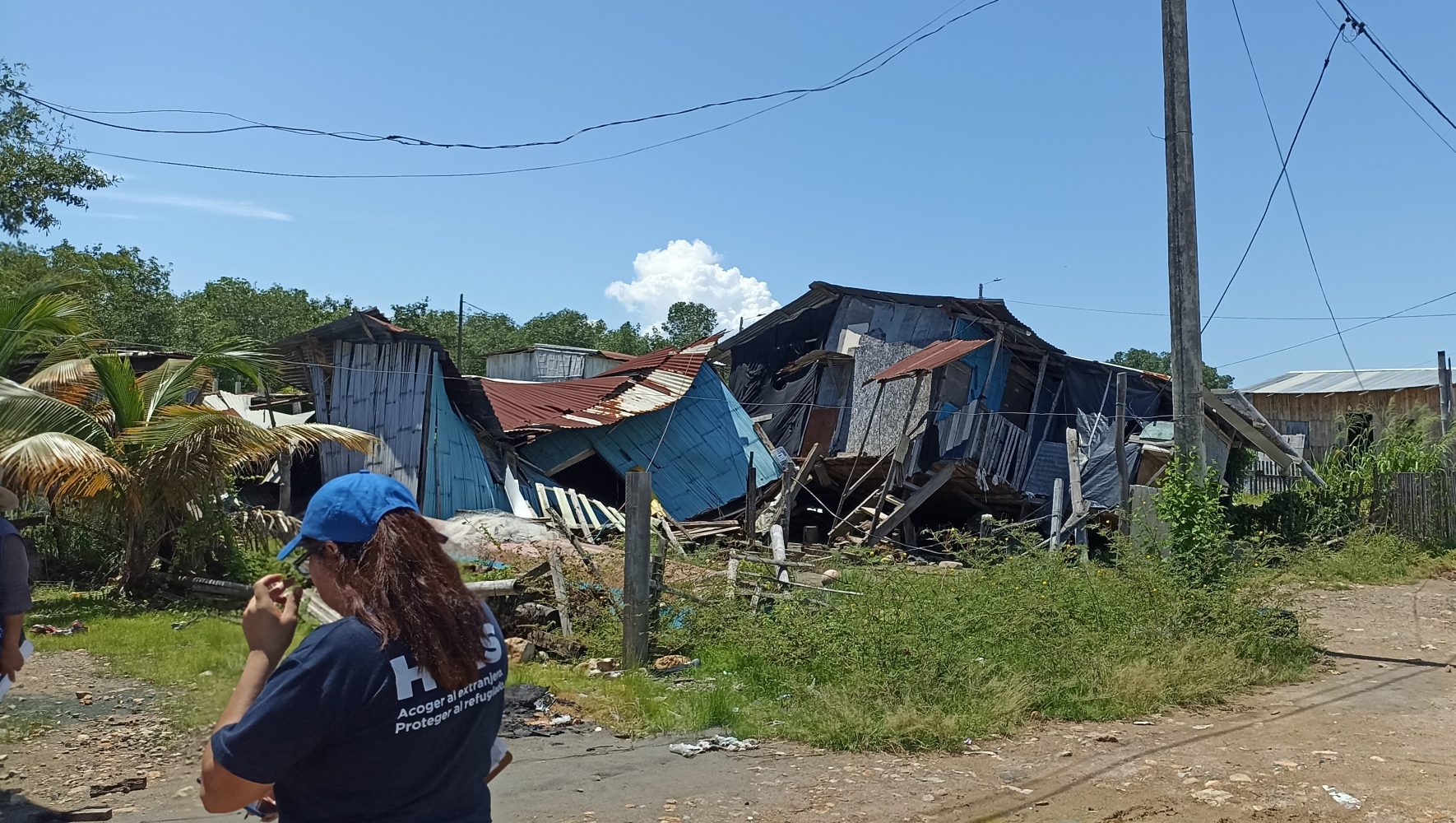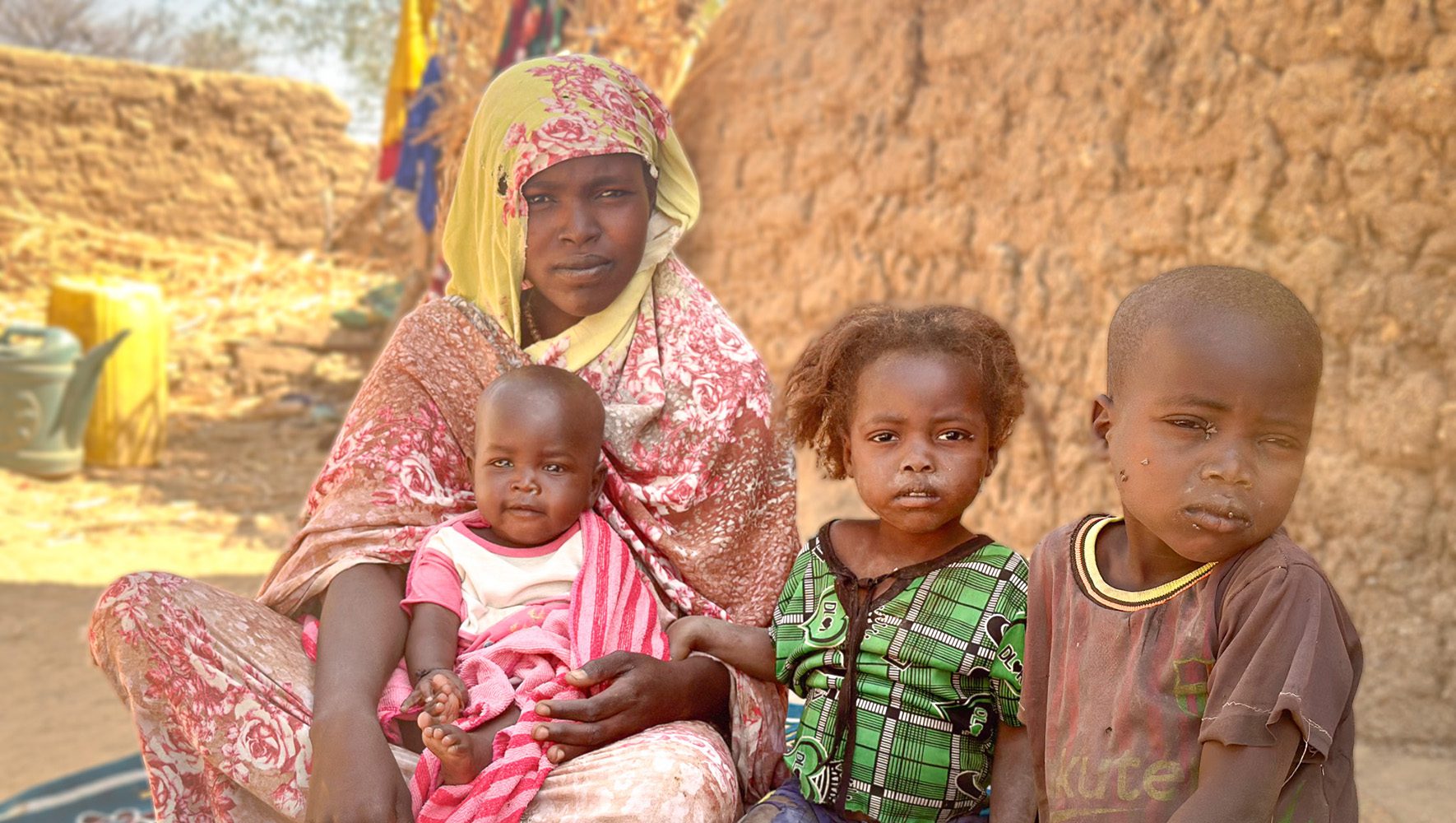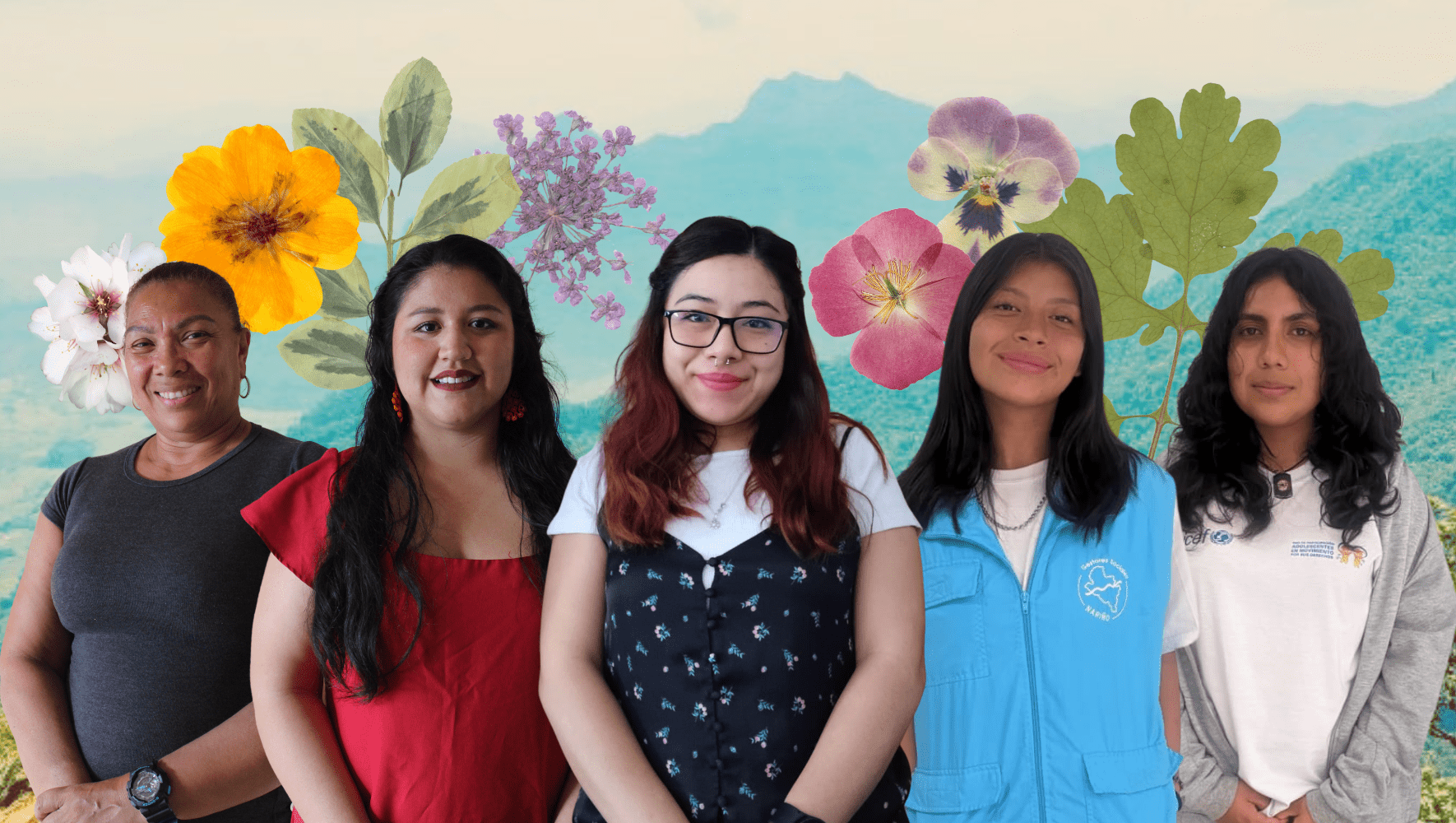2018 YEAR IN REVIEW: Challenges, Heartbreak, and Resolve
By Sharon Samber, HIAS.org
Dec 26, 2018
2018 was a challenging year for HIAS as we continued our work of fighting for refugees and asylum seekers. All around the world the numbers of both groups continued to climb, and at the same time the U.S. government was relentless in remaking immigration policies, making it harder for people to come to America in search of safety as so many have over the years.
And then came October 27th.
On that day, a gunman entered a synagogue in Pittsburgh and killed 11 people at Shabbat services, the deadliest attack on Jews in U.S. history. HIAS was thrust into the national spotlight with a stunning and disturbing connection to the shooter who had posted hate messages on social media shortly before the massacre. The attack altered many things for American Jewry, and of course, for HIAS.
It is not an exaggeration to say that the shooting changed HIAS. In addition to an overwhelming outpouring of support which continues to humble the organization and inspire new ideas for the future, HIAS is now more recognized than ever before and thousands of people, some with generations-old connections and some who have only just heard of us, are reaching out for information and ways to engage in the fight for refugee rights.
At the same time, many things have stayed the same. The fight for refugees and asylum seekers continues, and the mission of the organization is steadfastly the same. We continue to advocate, to bring together communities, and to work hard both in the U.S. and in our offices around the world to ensure that refugees and asylum seekers are protected and treated with dignity.
Here are some important moments from 2018:
-
In the latest annual Global Trends report, released on World Refugee Day in June, UNHCR announced that a total of 68.5 million people were displaced from their homes in 2017, marking the fifth straight year with a new record high. That number includes the 3.1 million asylum seekers awaiting a decision on their applications, and 40 million people internally displaced in their own countries.
-
In response to a growing political and humanitarian crisis, HIAS was at the U.S.-Mexico border multiple times. HIAS led several delegations, including a group of nearly 40 rabbis and community leaders, as well as legal missions to determine how we can provide direct assistance. HIAS also began a Border Fellows program, placing lawyers in three non-profit legal organizations along the southern border to increase their capacity to provide representation to asylum seekers in and out of detention. In August, HIAS co-led a Jewish Leadership delegation with the Anti-Defamation League, so 27 leaders from 17 national Jewish organizations could view firsthand the crisis at the southern border; you can watch a video from this trip.
-
Despite calls for increasing the number of refugees allowed into the U.S., the Trump administration decreased the refugee ceiling for fiscal 2019 to 30,000, an historic low number. In 2018 HIAS resettled 1633 refugees in the U.S., fewer than in previous years. But this year also saw HIAS launch first-of-its-kind software that uses artificial intelligence to optimize placement of refugees in geographies where they are most likely to succeed.
-
HIAS Ecuador assisted more than 30,500 refugees and asylum seekers last year, providing legal and protection services along with comprehensive assistance to individuals and families.
-
The American Jewish community was especially active in responding to the global refugee crisis this year. About 50 synagogues joined the ranks of HIAS' Welcome Campaign bringing the total to 427 congregations across the country signed on to advocate for refugee protection around the world and supporting and welcoming refugees in the United States. And in October, thousands of Jews came together in 33 states and Canada, at nearly 300 gatherings, to observe HIAS’ first-ever National Refugee Shabbat.
-
There were massive protests in Tel Aviv in February as part of an ongoing campaign against the Israeli government’s plans to detain or deport tens of thousands of African asylum seekers. HIAS Israel worked on the ground, and in the U.S. HIAS helped organize a call-in day urging North Americans to contact their local Israeli consulates and ask them to stop the deportation plans. In April the Israeli government announced it would cancel its plan to deport African asylum seekers.
-
HIAS invested in advocacy and organizing work across the U.S., expanding both our own capacity and the capacity of the American Jewish movement for refugees. HIAS pushed throughout the year to keep the U.S. refugee admissions program open and alive, and continued to expand asylum advocacy. HIAS provided advocacy trainings in Ohio, North Carolina, New Jersey, Pennsylvania, and Wisconsin. Two significant Jews for Refugees Assemblies took place in Los Angeles and Chicago, the DC Action Network grew, and the active Jews for Refugees facebook group expanded by about a thousand members.
-
HIAS Greece in May joined the new We are a Welcoming Europe campaign which works to promote solidarity and respect for refugees across the continent. Complex asylum procedures and restrictions on movement have created an overcrowding crisis in the Moira refugee camp and an urgent need for legal aid. But a unique, new partnership between HIAS and Islamic Relief USA is helping to ensure that the most vulnerable refugees in Greece receive access to protection and other assistance to help them resume their lives in safety and with dignity. HIAS documented the partnership’s work in a video shot on Lesvos.
-
In June, hundreds of thousands of Americans protested President Trump’s Muslim ban, the executive order restricting entry into the United States for nationals of seven countries, including five Muslim-majority ones. HIAS participated in protests around the country where hundreds of thousands of activists in more than seven hundred cities protested the Trump administration’s “zero-tolerance” policy on immigration. But hundreds of families remain detained.
-
In response to the intensification of the international refugee crisis, HIAS also began working in a new country this year: Aruba. The office is just starting out in its mission to assist the thousands of Venezuelans who are coming to start a new life there. The U.N. says there are now three million refugees and migrants from Venezuela who have left the country. HIAS is looking at ways to help Venezuelans in Colombia, as well as the Rohingya living in refugee camps in Bangladesh, in the coming year.
-
The year ended on something of a positive note with the approval of the U.N. Global Compact on Refugees, though the U.S. was one of only two countries that did not vote to approve the compact. The Global Compact is emblematic of the year: a sign that there is still a commitment to helping refugees and asylum seekers, but there is much work left to be done.
